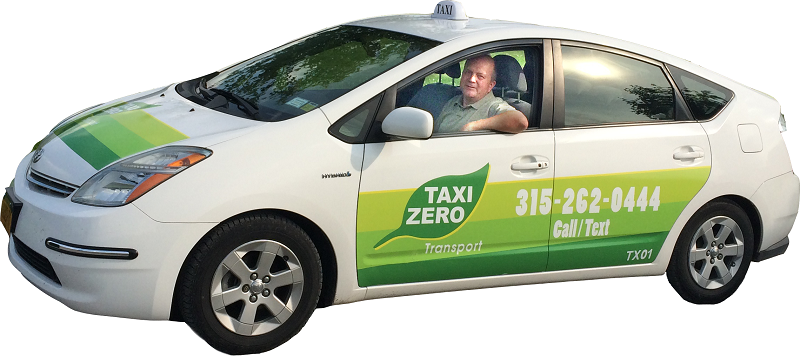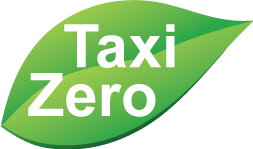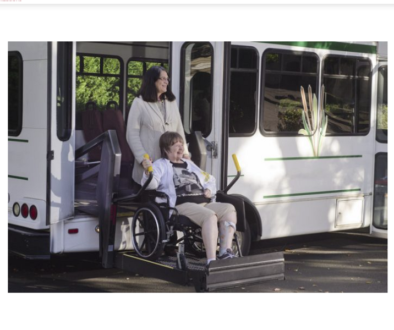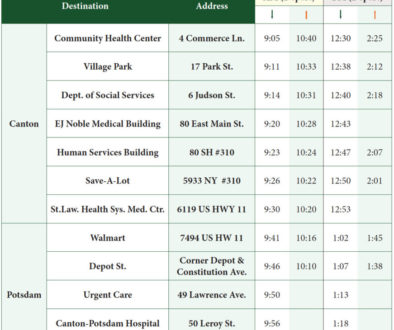Changing the Law for Fixed Taxi Rates to Fit the Law of Supply and Demand
This article was published in our local newspaper concerning changing the village ordinance that set a maximum rate for taxicab fares eight years previous.
The rate at that time (2008) was $6.00.
I approached the village board several times in 2014 to change the language in the village ordinance so that it did not set a rate, rather, it stipulated that each taxicab company would submit a rate to the village board, yearly, for approval.
After two-and-a-half years, the village board (with a new mayor) acted on this proposal, and the language change that I suggested was adopted. However, it took three village board meetings in 2016, some public comments from my competition, and some unfavorable newspaper articles, to get the law changed. Old ways die hard in a small town.
Having a Master’s Degree in Management Science from Clarkson University, I was an unlikely candidate to start a taxi business in our town of about 10,000 residents. However, after surveying the supply/demand curve, and the current pricing, I decided that the time was ripe to launch a taxi business and grow it into a larger enterprise.
Supply and Demand.
By freezing the price artificially low for eight years, (the fixed rate was $6.00 and the determined market rate was $10.00 – $12.00), the dam was about to burst with opportunity.
Normally, when demand is high and supply is low, there is an upward pressure on prices. By fixing the price and not allowing supply and demand to seek their natural levels, demand dries up because the suppliers drop out of the market.
When new suppliers come into the market and the price cap is removed, the price will, of necessity, rise to the market price. After some time, when prices are sufficiently high, new suppliers will enter the market to pick away at certain niche market areas and the market prices will begin to come down in certain areas.
Ultimately, customer satisfaction will trump low prices, and the customer will win. They will receive the best possible service at the best possible price.
John Meyers
Owner / Operator
Taxi Zero
From NorthCountryNow.com
Tuesday, December 20, 2016 – 5:30 pm
By CRAIG FREILICH
POTSDAM — The village board is expected to vote in January to accept rates to be submitted by two local taxi companies that will be in effect from then until April 2018.
Then rates taxis in the village charge was the subject of a hearing Monday night to change the local law to allow the board to record the rates by resolution rather than by amending local law each time there is a rate change.
During the hearing, Thad Broughton, the owner of Potsdam Taxi, said his competition could set whatever rate they wanted but he accused Taxi Zero owner John Meyers of gouging people in the village with excessive charges.
“He’s been ripping these people off,” Broughton said.
Meyers has said that the current $6 limit on rides within the village “is not enough in most cases.”
Addressing the board, Broughton encouraged the board to pull the Meyers’ taxi credentials.
One of the Meyers’ drivers was charged in October with violating the village’s taxi rate law.
“He’s been lying to you,” since he began charging more than allowed for rides in Potsdam, Broughton said.
Meyers said Monday he has turned down over 500 calls from the village “since the process began” to revise the law.
Meyers said “whether the rates are exorbitant will be determined by the market.”
Following the statements by Broughton and Meyers, a string of four men spoke on the common theme of letting the “free market” work, in this case allowing taxi companies to charge what they want and allowing customers to choose to ride or not.
Carson Smith of Bay Street said the free market would “reduce prices and increase quality.”
Josh McGrath of Elm Street said of taxi rates, “putting a cap on it doesn’t allow the free market to do what it needs to do.”
Property owner Pat Wilbur said he believes the companies should have options regarding their different services. He said the new law should reflect a “need to open up flexibility to open up competition.”
Jeff McGrath said that when the communications company he works for was a monopoly, “regulations were appropriate.” He said the board would not be out of line to review rates, but that free markets should be the method of determining the correct rates.
Broughton countered that a free market has its place, but oversight might be needed to keep businesses from, for instance, “taking advantage of people who might need a ride because they’re intoxicated.”
Village Clerk Lori Queor said the taxi companies should submit their rates to her office now so that when the local law adopted Monday is enacted the village can officially record their rates by resolution and they can go into effect. Queor said she expects to hear back from the Department of State in January that they have recorded the law, which would signal that the law is in effect.
The new rates would be in effect until April 2018.
After that, the rates will have to be submitted to the village every April, when permits for taxi drivers and taxi companies are issued annually. The village is skipping a rate change in April 2017 because the action Monday would otherwise leave just a fraction of a year for the new rates.
“The Village taxi rate shall be prominently posted in each vehicle such that it is readable by any and all passengers,” the new local law says.


